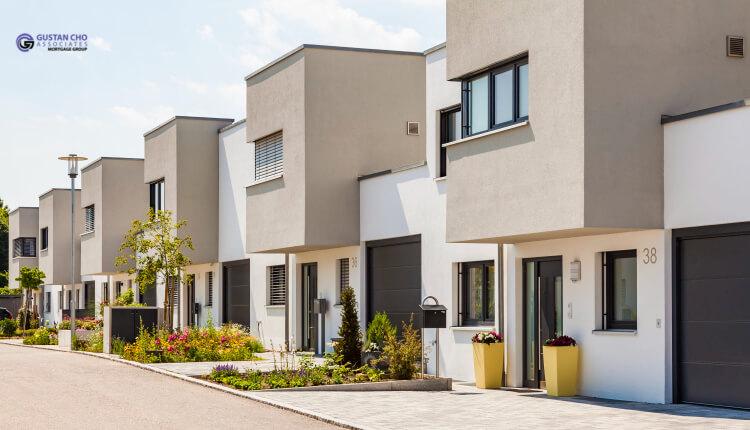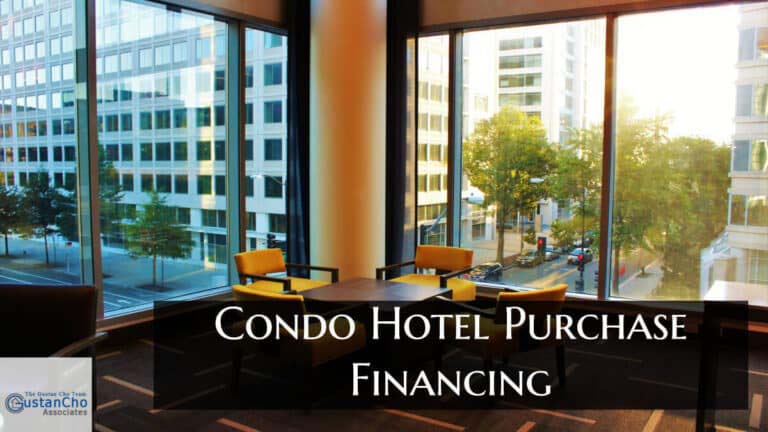Condo
What are condos?
You might ask yourself what a condominium is? Some people think that a condominium is a fancy apartment. A condominium, also called a condo, is actually a building that is made up of private, individually owned units. When you live in an apartment, you are renting the space. When living in a condo, think of convenience! The building will sometimes offer additional security or amenities such as a community gym or other recreational areas that are owned by everyone in the building. These are communal spaces that are maintained by the board of the condo and there is often a fee that the owners of each condo have to pay. There are approximately 17 million condos in the United States that are privately owned. A condo is generally lower priced and more affordable than traditional one family houses.
What are Condo Mortgage Loans?
Condo loans can be used to purchase a primary residence, vacation homes and investment properties. These loans sometimes have higher interest rates because there are higher risk factors. The risk factor is there because condo owners share the common spaces and amenities with the other people who live in the building, thus sharing the financial responsibility for these spaces. When determining if a borrower will qualify, a lender will check the amenities of the condo, the condition of the building and grounds, and the building’s age and the financial stability of the association.
Although many of the same steps apply to obtaining both a condo mortgage and a traditional home mortgage, there are some differences. Condo mortgages might require more paperwork and extra steps to get completed, which really just falls to the underwriting process. This information can be gathered from the Home Owners Association (HOA) of the condo or the management company of the condo. Some examples of extra information that they will need to get the loan approved are the number of units in the building, any lawsuits that involve the condo association, the number of unit owners who are behind on their dues, and proof of insurance policies for the property. They will want to know the amount of units that are rented vs owned, the amount of money that is in reserve for maintenance, and the amount of space for the amenities. Depending on how you plan to use the property will determine which loan you should apply for.
Credit
We all know that your credit score is important. The credit score that you need for a condo loan depends on which loan type you are applying for. FHA loans require a lower score than VA, conventional, or USDA loans. An FHA loan requires a credit score of at least 580. The VA, conventional, and USDA loans could require a score of 680 or higher, although there are exceptions. As with any mortgage loan, a lender will check your debt to income (DTI) ratio.
Real Estate Agent
It is also important to find a real estate agent that is experienced in finding a condo and the entire process in assisting you in buying one. They are an advocate for you and can assist you in gathering and submitting all the needed documents.
Conventional Loans:
A conventional loan is not insured by a government agency. You will want to find out if the condo you wish to purchase is warrantable or non warrantable. Fannie Mae and Freddie Mac have rules and regulations set for condo loans. If it is warrantable, then it is much easier to get approved for the mortgage. These rules ensure that the condo is in a financially sound area. They supply guidelines for condo purchases including no more than 15% of the units can be 60 days or more late on HOA fees, at least 50% of units must be owner occupied, not rented or vacant. At least 10% of the condo budget must be reserved for maintenance and the lender will review the HOA budget.
Federal Housing Administration Loans (FHA)
The ability to get an FHA Condo loan depends on if your desired condo is on the FHA list of approved condominiums. FHA loans generally have a lower down payment required, often as low as 3.5%. The FHA requires that at least 50% of the units in the building must be owner occupied (meaning that they can’t all be rentals), that only 50% of the owned units can be FHA insured, and the non residential area (Amenities) can’t exceed 35% of the total floor area. The units must be completely detached from each other and single family. The building must contain more than two units. To check the additional approval requirements, you can go to the FHA website or check with your realtor.
VA Loans
VA loans are Veterans Association Loans designed for Veterans or their spouses to buy a home. These loans often require no money down. Again, there is a list supplied by the VA of approved condo type in order to get financing. You can get a condo on the list in order to get it approved. Some of the documents that will need to be supplied in order to get the condo approved are the homeowner association budget bylaws, financial statements, master deed or the recorded condominium declaration,and a written request for VS approval of the condo development. In order for a condo to qualify for the loan, the VA requires that at least 35% of the units are owner occupied, the association will need to supply at least three years of financial records, less than 10% of the units can be 60 days late on the HOA fees, and no less than 20% of the HOA budget has to be reserved for maintenance. For a complete list of requirements, you can visit the VA website.
US Department of Agriculture Loans (USDA)
The USDA loan allows buyers in rural areas to purchase a home or condo with no down payment. This home must be approved by the USDA and structurally sound with flood insurance if it is in a flood zone. The USDA would need to be in an approved USDA rural area. If the property is on the approved condo list from FHA, Fannie Mae, Freddie Mac or the VA, it will also be considered the USDA approved condos. USDA eligible condos must meet some additional requirements including, being deemed acceptable by the buyer’s lender, flood insurance, and certified as structurally safe by a state licensed inspector. For a full list of qualifying criteria, you can visit the USDA website.
What are the good and not so good parts to owning a condo?
The positives are that it is often cheaper to buy a condo vs a more traditional single family property. This can vary greatly depending on the area and the type of condo you are looking to purchase. Another positive is that you are not responsible for upkeep on the outside of the condo, because you pay HOA or maintenance fees for this to be taken care of. This means no mowing or seasonal yard work. With condominium ownership, you have access to all the amenities it offers. These can include swimming pools, community gyms, or recreational centers. There might also be increased security in the form of guards, or keyed entrances to the building.
Potential downsides to owning a condo would be that there is a chance that it will be harder to sell. That is because there are limitations to condo living. The HOA could have very specific rules that you have to follow, including how you can renovate or acceptable noise levels. You will also have higher monthly fees due to HOA dues and shared expenses to upkeep the building. You also need to remember that there will be higher interest rates because of the increased risks with condos.
Before making the jump into owning a condo, you need to do your due diligence and research the management company. What are the condo association rules? If you are buying a condo in order to have an investment property, ensure that it is allowed. There are some HOA or management companies that will not allow for renting out the space. Are the amenities worth the cost? One association might have tennis courts, a pool, gym, and park area where one might have a much less valuable set of commonly shared areas. Finally, you should calculate all the costs that are associated with owning a condo. For example, you will need to pay the principal and interest, mortgage insurance, condo insurance, association dues, and property taxes, and the monthly payment can add up. On the flip side, you should also take into account that you will not need to perform maintenance on the outside of the building, you will not need to purchase seasonal help or machinery (mowers or snow blowers) and you will have access to amenities. Add in that condo’s are oftentimes in great areas of town, you might find that you are perfectly suited to condo living!






